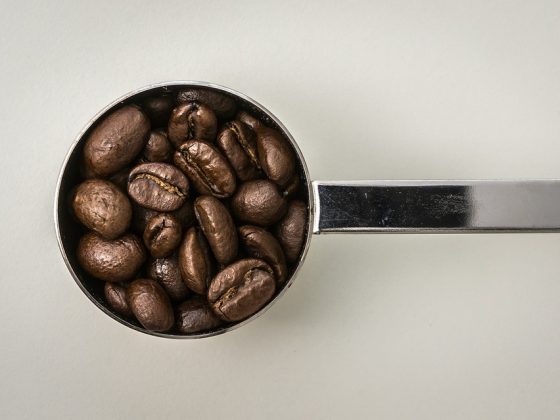end.
Coffee beans are a staple for many people around the world. Whether you enjoy it black, with cream and sugar, or with a splash of flavoring, coffee is a popular beverage that provides a much-needed jolt in the morning. However, coffee beans offer more than just a morning pick-me-up. In fact, they have a range of health benefits that may surprise you.
1. Rich in Antioxidants
Coffee beans are a rich source of antioxidants, which are compounds that help protect your cells from damage caused by free radicals. Free radicals are unstable molecules that can damage cells and contribute to aging and the development of diseases like cancer and heart disease. Antioxidants help neutralize these harmful molecules, reducing their damaging effects on your body.
2. Boosts Brain Function
Perhaps one of the most well-known benefits of coffee beans is their ability to boost brain function. Coffee contains caffeine, a natural stimulant that blocks the inhibitory neurotransmitter adenosine. This leads to enhanced firing of neurons and the release of neurotransmitters like dopamine and norepinephrine. As a result, coffee can improve mood, memory, and overall cognitive function.
3. Improves Physical Performance
In addition to boosting brain function, coffee beans can also improve physical performance. Caffeine increases adrenaline levels, which can help prepare your body for physical exertion. Studies have shown that consuming caffeine before a workout can enhance performance, increase endurance, and improve overall exercise performance.
4. May Lower Risk of Chronic Diseases
Recent research has suggested that drinking coffee may be associated with a reduced risk of certain chronic diseases. For example, studies have found that coffee consumption is linked to a decreased risk of developing type 2 diabetes, Alzheimer’s disease, and Parkinson’s disease. Additionally, some research suggests that coffee may lower the risk of certain types of cancer, including liver and colorectal cancer.
5. Supports Weight Management
Coffee beans may also support weight management. Caffeine has been shown to increase metabolism and promote fat burning. Additionally, coffee can suppress appetite and increase feelings of fullness, which may help reduce calorie intake and support weight loss. However, it is important to note that adding excessive amounts of sugar and cream to your coffee can negate these weight management benefits.
6. Protects the Liver
The liver is an essential organ that plays a crucial role in detoxification, metabolism, and overall health. Coffee beans have been shown to have protective effects on the liver, reducing the risk of liver disease and liver damage. Studies have found that coffee consumption is associated with a lower risk of liver cirrhosis, fatty liver disease, and liver cancer.
7. Supports Heart Health
Coffee beans may also support heart health. Studies have found that moderate coffee consumption is associated with a reduced risk of heart disease and stroke. Coffee contains compounds like chlorogenic acid and quinides, which have been shown to have protective effects on the cardiovascular system. Additionally, coffee consumption is linked to lower levels of inflammation and improved blood vessel function.
Overall, coffee beans offer a range of health benefits beyond just providing a much-needed energy boost. From protecting against chronic diseases to supporting brain function and weight management, coffee can be a valuable addition to a healthy diet. However, it is important to consume coffee in moderation and be mindful of added sugars and cream that can negate its health benefits.
FAQs:
1. How much coffee should I drink to reap the health benefits?
Moderate coffee consumption is generally considered safe and beneficial for most people. The Dietary Guidelines for Americans recommend consuming up to 400 milligrams of caffeine per day, which is roughly equivalent to three to four cups of coffee. However, individual tolerance to caffeine may vary, so it is important to listen to your body and adjust your intake accordingly.
2. Will decaffeinated coffee offer the same health benefits?
Decaffeinated coffee can still offer some of the health benefits of regular coffee, as it contains many of the same antioxidants and compounds. However, some of the beneficial effects of coffee, such as improved physical performance, may be reduced in decaffeinated coffee. Additionally, the decaffeination process can remove some of the antioxidants present in coffee beans.
3. Are there any potential risks associated with drinking coffee?
While moderate coffee consumption is generally considered safe for most people, excessive caffeine intake can lead to side effects like insomnia, restlessness, increased heart rate, and digestive issues. Additionally, some individuals may be sensitive to caffeine and experience anxiety, jitters, or heart palpitations. It is important to listen to your body and limit your caffeine intake if you experience any negative side effects. Pregnant women, individuals with heart conditions, and those with caffeine sensitivity should consult with a healthcare provider before consuming coffee.











